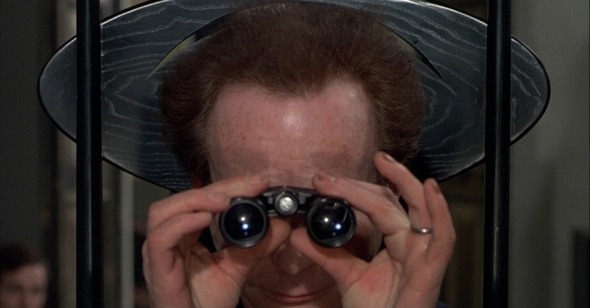By the launch of our last symposium in September of 2016, which focused on the career of Agnès Varda, we were feeling hale and hearty, and optimistic about the future. Things didn’t turn out exactly as we’d expected.
Today, the dark clouds over the republic—and the world at large—continue to gather. As film critics, we’ve been unclear what to do with our despondency, other than one clear thing: direct our outrage away from suffocating social media channels and toward writing, reasoning, wrestling with ideas, praising, hoping, questioning.
We spent several months since the election trying to figure out the best way to address our harsh new reality while staying true to the spirit of Reverse Shot. In years past, we've organized politically motivated symposiums: way back in 2003, we composed This Means War!, at the height of Bush's Iraq invasion; a year later, in the lead-up to the 2004 presidential election, we debuted Reverse Shot for President, which was a way of discussing American principles and history through film; our 2009 symposium Proposition 24: Defining a New Queer Cinema was a decidedly Obama-era affair. That it's taken this long for us to return to American political discourse says a lot about the relative ease of the last eight years—or perhaps it’s a stark reminder of what we've been taking for granted.
We went through many possibilities. We wondered, back in December and January, should we somehow focus on the idea of elitism, and the ephemerally topical idea that blinkered coastal liberals need to reach out and understand those in flyover country we've been rudely ignoring for years? Should we focus on diversity, as a way of underlining just what it is that can make America great and the horrifying essentialism and racism that typified the Trump campaign and administration? Should we somehow make the symposium about the cinematic path of resistance? None of these seemed quite right; all offered the potential of delivering more of the woke-critic pabulum that’s run rampant since the election.
So we started thinking of another direction. During his first few months as President, Donald J. Trump has been issuing executive orders the way others issue farts. Looking over the ever-growing list of EOs—designed by Trump with a lot of help from others, including in the early days, creep-in-chief and horrible filmmaker Steve Bannon—we realized that they seemed to exemplify many of our worst fears of this regime. Whether deregulating Wall Street, loosening ethics restrictions, putting unqualified campaign strategists on the National Security Council, barring refugees and banning immigrants, encouraging charters and school vouchers instead of public school overhaul, building a wall with Mexico and detaining and deporting illegal immigrants, cutting funding for sanctuary cities, nonsensical rule-establishing (for every new regulation, two are repealed), these edicts crystallized our worst fears of a Trump presidency, and confirmed him as a president who would prefer to rule as a despot, rather than work through legislative processes.
We offered a challenge to our writers: to use any of Trump’s orders as an inspiration or starting point for an essay about a single film—narrative or avant-garde, American or foreign, fiction or documentary. The topic was not unlike our past comparative symposiums—East Meets West, Stuck in the Middle, True Stories—except instead of comparing two films, the writers were running a cinematic work against a political statement. The choice of film could represent a direct rebuke to the chosen order. Or the film could directly illustrate its consequences. Or the order/film pairing could be merely a jumping off point for a broader thematic inquiry. Writers were encouraged to dig deep personally, if they so desired. As with our other politically minded symposiums, we hoped to produce a snapshot that captures this moment in time, but also that points toward those ideals of the nation we worry are being eroded.
